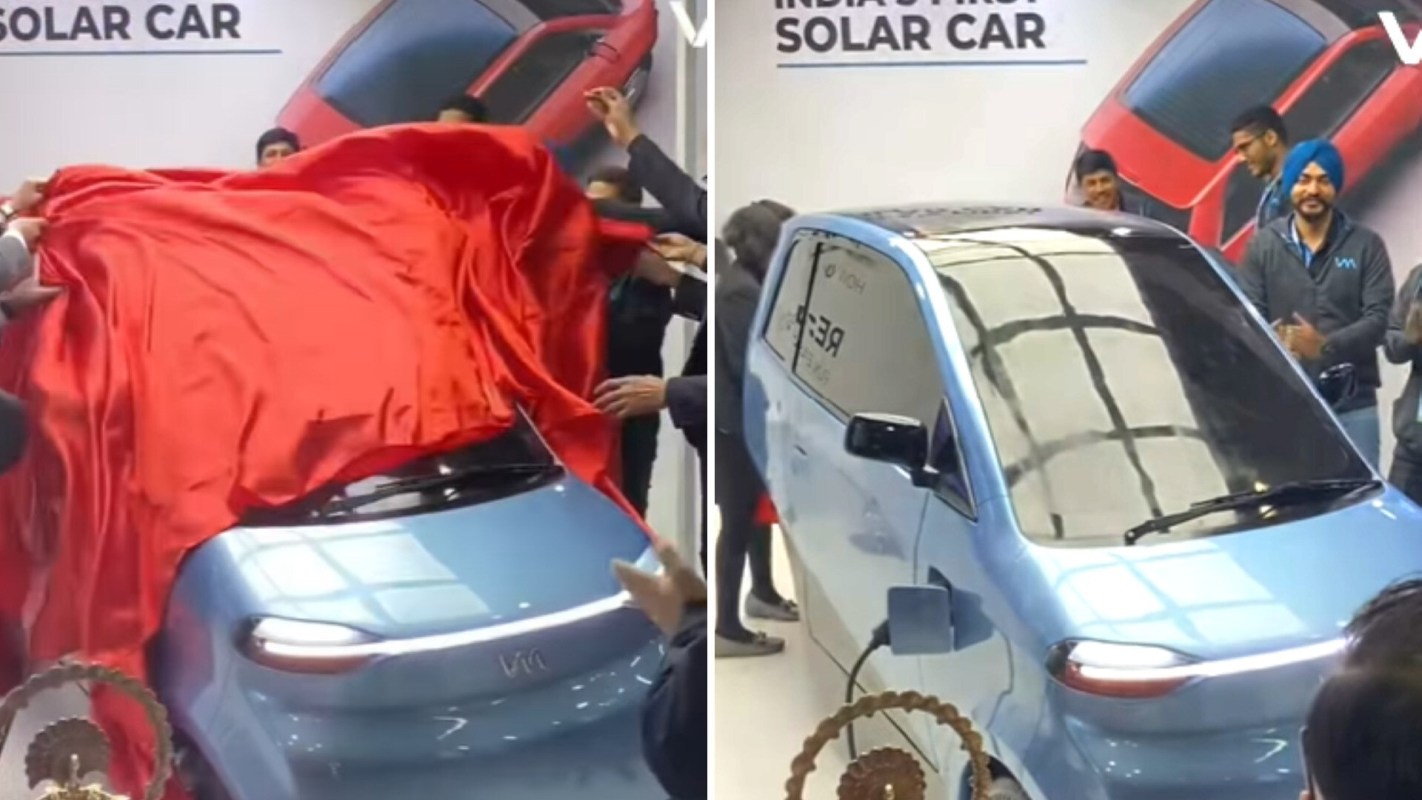An Indian start-up has created the country's first solar-powered electric car, showcasing the growing popularity of vehicles using free, ultra-efficient energy from the sun.
Eva, which was created by the company Vayve Mobility, comes with a slim single-door design and solar panel roof, which the company says will help to reduce harmful car pollution and increase mobility in India's heavily congested cities.
"India is a fast developing and populous country. With cities growing rapidly and rising traffic, there is a huge strain on infrastructure," Vayve Mobility's co-founder, Vilas Deshpande, told The Better India. "We are trying to redefine urban mobility in the country by creating a new category of vehicles."
Eva's design is much smaller than an ordinary car with the capacity to hold just two adults and one child. This makes it far more maneuverable on India's congested roads — Mumbai has been voted the world's third most congested city, with Bengaluru and New Delhi also ranking in the top ten.
Nilesh Bajaj, the company's CEO, told Indian Express that the average occupancy of an Indian car is less than 1.5 people.
And then, there's the cost. If Eva drivers choose to add the car's optional solar-paneled roof, too, they could use free solar energy to generate around one-third of their car's total energy needs.
Deshpande told The Better India that, in India, the average car racks up 9,000 kilometers (around 5,500 miles) worth of travel a year. Eva can drive up to 7.5 miles a day just on solar power, which adds up to roughly 1,900 miles per year.
Beyond solar energy, Eva runs on an electric battery that takes four hours to charge. Once it is fully charged, Eva can cover a distance of 155 miles.
The start-up unveiled its first prototype at the 2023 Auto Expo in Greater Noida, Uttar Pradesh. The car has been in development for two years.
Harmful pollution from transportation is a growing concern in India, with the number of cars on the road currently doubling every eight to ten years.
India is the third highest-polluting country in the world, after the U.S. and China. Although just 13.5% of its carbon pollution comes from transport, that number is expected to grow faster than other sectors as more of India's citizens purchase a car.
To combat this issue, the Indian government is implementing its ambitious Faster Adoption and Manufacturing of (Hybrid &) Electric Vehicles program, which pushes for a rapid transition to EVs across the country.
The government is aiming for 30% of all new vehicle registrations to be electric by 2030, with 30% of private cars, 70% of commercial cars, 40% of buses, and 80% of two and three-wheelers anticipated to be EVs.
Eva is expected to start contributing to that EV growth starting in 2024, which is when its first commercial models will go to market.
Join our free newsletter for cool news and actionable info that makes it easy to help yourself while helping the planet.









